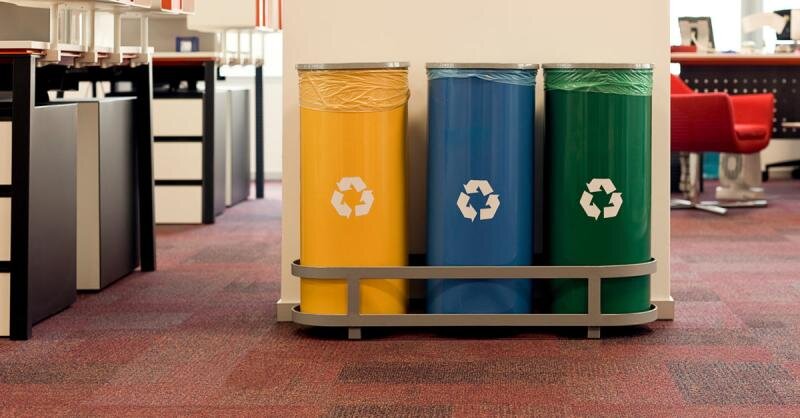On average, each American throws out more than four pounds of waste per day. Recycling saves materials from the landfill, which makes products more affordable for shoppers and manufacturers, reduces energy use, and cuts greenhouse gas emissions. But knowing the best way to dispose of something can get confusing.
Keep this handy guide in your kitchen to know which items go where.
Recycling bin
Check with your town or waste-removal service to find out what it accepts. The items below are commonly recyclable if clean.
Paper and cardboard: recycle newspaper, office paper, junk mail, magazines, brown bags, and regular or corrugated cardboard.
Aluminum, steel, and tin: soda cans, food cans, foil, and baking pans can be recycled, but be sure to clean off food residue.
Glass: glass of any color is typically recyclable. Keep broken glass out of your curbside bin for the safety of sanitation workers.
Plastic containers: containers labeled #1 through #7 are commonly accepted, but make sure they’re clean.
Cartons: wash out milk and juice cartons, and place them with other paper recyclables.
Trash can
The following items are hard to recycle. Try to use alternative materials and reusable items when you can!
Coated paper products: disposable coffee cups, sheets of stickers or address labels, and frozen-food boxes are not recyclable.
Most styrofoam: styrofoam cups and containers are technically recyclable, but few facilities accept them for cost reasons.
Disposable diapers: the paper and plastic from these items cannot be salvaged.
Food wrappers: candy wrappers, potato chip bags, and plastic wrap cannot be recycled.
Food-related paper products: because of the food residue on these products, pizza boxes, take-out containers, napkins, and paper towels cannot be recycled.
Special recycling bin
Some businesses and government services accept these special items for disposal and recycling. Look for specially marked bins in your local area.
Plastic bags: these may be accepted at your local supermarket, but reusable cloth bags will always be your best bet.
Empty ink cartridges: most business supply stores will recycle these.
Household batteries: drop them off at a public facility, like the library, post office, or recycling center.
Lightbulbs: some home improvement stores will recycle lightbulbs for you.
Clothing and shoes: if they are in pretty good condition, someone else might want these items, so donate them to a local charity or thrift store.

